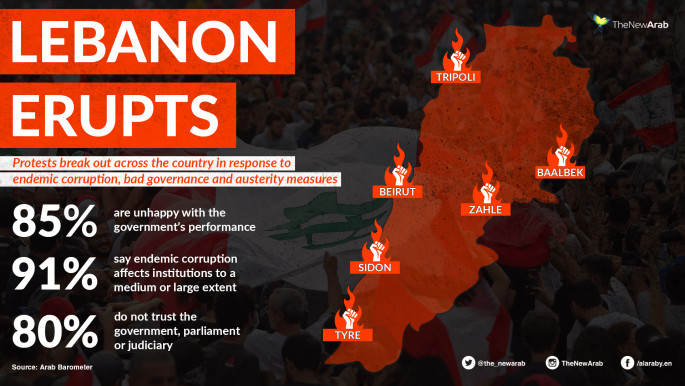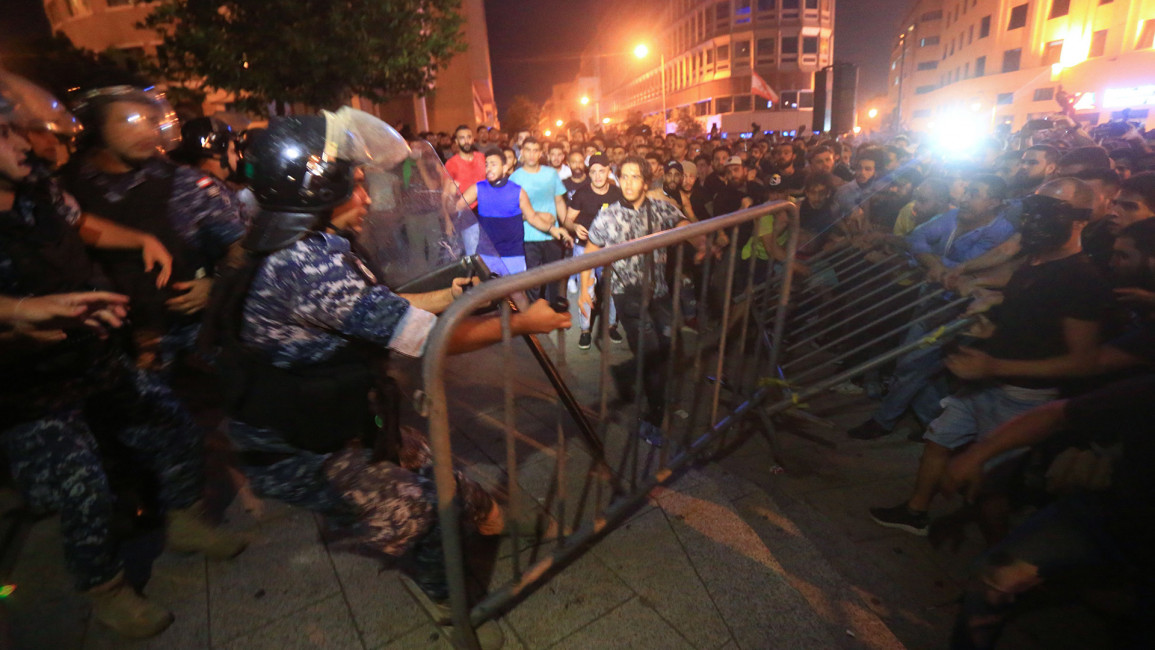UK says Lebanon's anti-corruption protesters have 'legitimate frustrations'
The embassy called for reforms in Lebanon in a tweet, as the country enters its second week of nationwide anti-corruption protests.
"A week after these protests started, the Lebanese people have expressed legitimate frustrations, which must be heard. This is an important moment for Lebanon: the necessary reforms should be implemented urgently," the British embassy's tweet said.
"The UK will continue to support a secure, stable, sovereign and prosperous Lebanon, including a stronger and fairer economy, quality education for all, improved services, and enhanced security", the embassy added.
Read also: Q&A: Lebanon's revolt
The statement comes after the United States called on Lebanon's leaders to meet the "legitimate" grievances of citizens.
|
||
David Schenker, the top State Department official for the Middle East, said the United States "stands ready to assist the Lebanese government" in taking action, without commenting on a reform package presented by Prime Minister Saad Hariri.
The demonstrations show the need for a "frank discussion" between leaders and citizens over "the Lebanese people's longstanding demands for economic reform and an end to endemic corruption," Schenker told reporters.
"It will be up to the Lebanese people to decide whether these measures go far enough to satisfy their legitimate desires for a prosperous and thriving country free of the corruption that has undermined its potential for too long," he said.
Protests sparked on 17 October by a proposed tax on calls made through WhatsApp and other messaging apps have morphed into a massive movement seeking to revamp the entire political system.
The demonstrations have crossed sectarian lines, bringing historic unity in a country still scarred by its civil war which ended in 1990.



